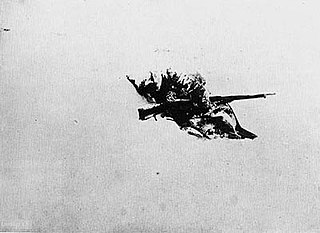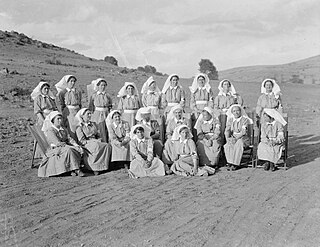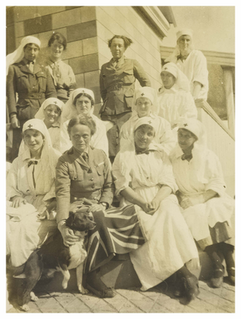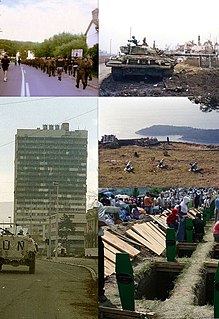 W
WThe Balkans theatre, or Balkan campaign, of World War I was fought between the Central Powers and the Allies.
 W
WThe Balkans campaign of World War II began with the Italian invasion of Greece on 28 October 1940. In the early months of 1941, Italy's offensive had stalled and a Greek counter-offensive pushed into Albania. Germany sought to aid Italy by deploying troops to Romania and Bulgaria and attacking Greece from the east. Meanwhile, the British landed troops and aircraft to shore up Greek defences. A coup d'état in Yugoslavia on 27 March caused Adolf Hitler to order the conquest of that country.
 W
WThe Balkans theatre, or Balkan campaign, of World War I was fought between the Central Powers and the Allies.
 W
WThe Croat–Bosniak War was a conflict between the Republic of Bosnia and Herzegovina and the self-proclaimed Croatian Republic of Herzeg-Bosnia, supported by Croatia, that lasted from 18 October 1992 to 23 February 1994. It is often referred to as a "war within a war" because it was part of the larger Bosnian War. In the beginning, Bosniaks and Croats fought in an alliance against the Yugoslav People's Army (JNA) and the Army of Republika Srpska (VRS). By the end of 1992, however, tensions between Bosniaks and Croats increased. The first armed incidents between them occurred in October 1992 in central Bosnia. Their military alliance held out until early 1993 when their cooperation fell apart and the two former allies engaged in open conflict.
 W
WThe Croatian War of Independence was fought from 1991 to 1995 between Croat forces loyal to the government of Croatia—which had declared independence from the Socialist Federal Republic of Yugoslavia (SFRY)—and the Serb-controlled Yugoslav People's Army (JNA) and local Serb forces, with the JNA ending its combat operations in Croatia by 1992. In Croatia, the war is primarily referred to as the "Homeland War" and also as the "Greater-Serbian Aggression". In Serbian sources, "War in Croatia" and (rarely) "War in Krajina" are used.
 W
WThe 2001 insurgency in Macedonia was an armed conflict which began when the ethnic Albanian National Liberation Army (NLA) militant group, formed from veterans of the Kosovo War and Insurgency in FR Yugoslavia, attacked Macedonian security forces at the beginning of February 2001, and ended with the Ohrid Agreement, signed on 13 August of that same year. There were also claims that the NLA ultimately wished to see Albanian-majority areas secede from the country, though high-ranking members of the group have denied this. The conflict lasted throughout most of the year, although overall casualties remained limited to several dozen individuals on either side, according to sources from both sides of the conflict. With it, the Yugoslav Wars had reached Macedonia. The Socialist Republic of Macedonia had achieved a peaceful independence from Yugoslavia in 1991.
 W
WThe Macedonian front, also known as the Salonica front, was a military theatre of World War I formed as a result of an attempt by the Allied Powers to aid Serbia, in the fall of 1915, against the combined attack of Germany, Austria-Hungary and Bulgaria. The expedition came too late and in insufficient force to prevent the fall of Serbia, and was complicated by the internal political crisis in Greece. Eventually, a stable front was established, running from the Albanian Adriatic coast to the Struma River, pitting a multinational Allied force against the Bulgarian Army, which was at various times bolstered with smaller units from the other Central Powers. The Macedonian front remained quite stable, despite local actions, until the great Allied offensive in September 1918, which resulted in the capitulation of Bulgaria and the liberation of Serbia.
 W
WThe Ostrovo Unit was a Field hospital unit with Transport Coloumn of the Scottish Women's Hospitals. It comprised approximately 200 tents and was situated near Lake Ostrovo, Macedonia during the First World War under the command of the Serbian Army. It was often called The America Unit as the money to fund it came from America and except for a few dressing stations, it was the Allied hospital nearest the front.
 W
WThe Scottish Women's Hospitals for Foreign Services (SWH) was founded in 1914. They were led by Dr. Elsie Inglis and provided nurses, doctors, ambulance drivers, cooks and orderlies. By the end of World War I 14 medical units had been outfitted and sent to serve in Corsica, France, Malta, Romania, Russia, Salonika and Serbia.
 W
WSerbia was involved in the Yugoslav Wars in the period between 1991 and 1999—the war in Slovenia, the war in Croatia, the war in Bosnia and the war in Kosovo. During this period from 1991 to 1997, Slobodan Milošević was the President of Serbia, Serbia was part of the Federal Republic of Yugoslavia, the International Criminal Tribunal for the Former Yugoslavia (ICTY) has established that Milošević was in control of Serb forces in Bosnia and Herzegovina and Croatia during the wars which were fought there from 1991 to 1995.
 W
WThe Serbian Campaign is the series of campaigns launched against Serbia at the beginning of the First World War. The first campaign began after Austria Hungary declared war on Serbia on 28 July 1914, the campaign to "punish" Serbia, under the command of Austrian Oskar Potiorek, ended after three unsuccessful Austro-Hungarian invasion attempts were repelled by the Serbs and their Montenegrin allies. Serbia's defeat of the Austro-Hungarian invasion of 1914 ranks as one of the great upsets of modern military history.
 W
WThe Ten-Day War, or the Slovenian War of Independence, was a brief conflict that followed Slovenia's declaration of independence from Yugoslavia on 25 June 1991. It was fought between the Slovenian Territorial Defence and the Yugoslav People's Army (JNA). It lasted from 27 June 1991 until 7 July 1991, when the Brioni Accords were signed. It marked the beginning of the Yugoslav Wars.
 W
WThe history of Thracian warfare spans from the 10th century BC up to the 1st century AD in the region defined by Ancient Greek and Latin historians as Thrace. It concerns the armed conflicts of the Thracian tribes and their kingdoms in the Balkans. Apart from conflicts between Thracians and neighboring nations and tribes, numerous wars were recorded among Thracian tribes.
 W
WWorld War II in Yugoslav Macedonia started with the Axis invasion of Yugoslavia in April 1941. Under the pressure of the Yugoslav Partisan movement, part of the Macedonian communists began in October 1941 a political and military campaign to resist the occupation of Vardar Macedonia. Officially, the area was called then Vardar Banovina, because the very name Macedonia was prohibited in the Kingdom of Yugoslavia. It was occupied mostly by Bulgarian, but also by German, Italian, and Albanian forces.
 W
WWorld War II military operations in Yugoslavia began on 6 April 1941, when the Kingdom of Yugoslavia was swiftly conquered by Axis forces and partitioned between Germany, Italy, Hungary, Bulgaria and client regimes. Subsequently, a guerrilla liberation war was fought against the Axis occupying forces and their locally established puppet regimes, including the fascist Independent State of Croatia and the Government of National Salvation in the German-occupied territory of Serbia, by the communist-led republican Yugoslav Partisans. Simultaneously, a multi-side civil war was waged between the Yugoslav communist Partisans, the Serbian royalist Chetniks, the Croatian fascist Ustashe and Home Guard, Serbian Volunteer Corps and State Guard, as well as Slovene Home Guard troops.
 W
WThe Yugoslav Wars were a series of separate but related ethnic conflicts, wars of independence, and insurgencies fought in the former Yugoslavia from 1991 to 2001, which led to the breakup of the Yugoslav state. Its constituent republics declared independence, despite unresolved tensions between ethnic minorities in the new countries, fueling the wars.